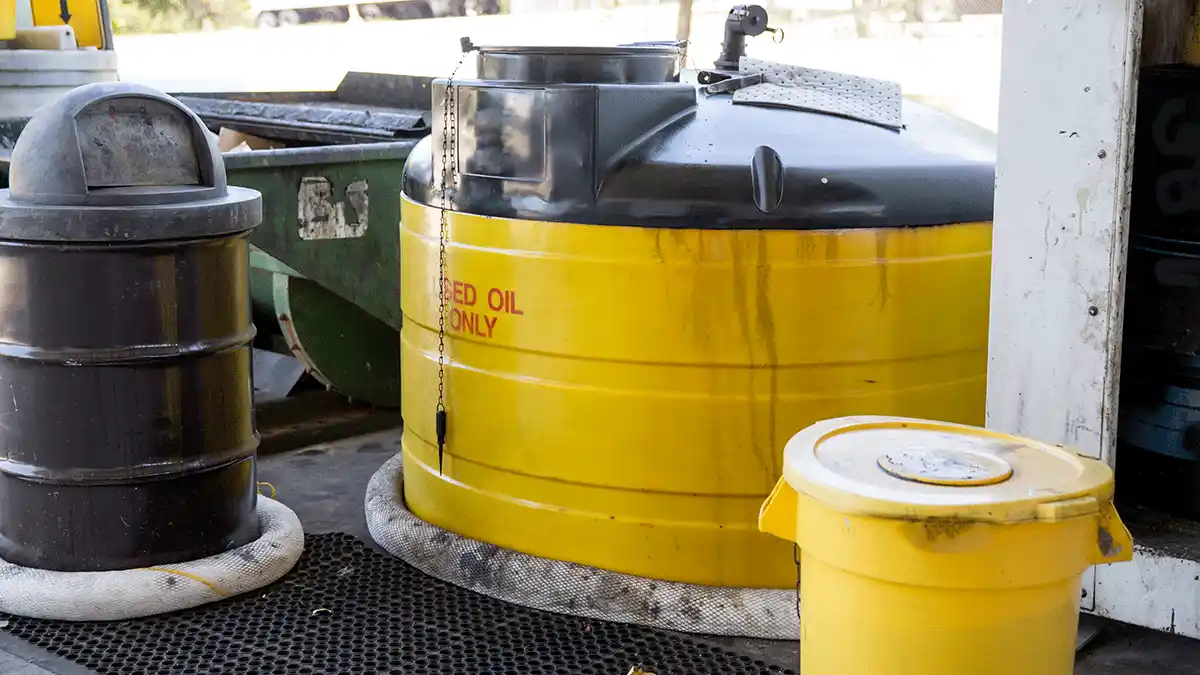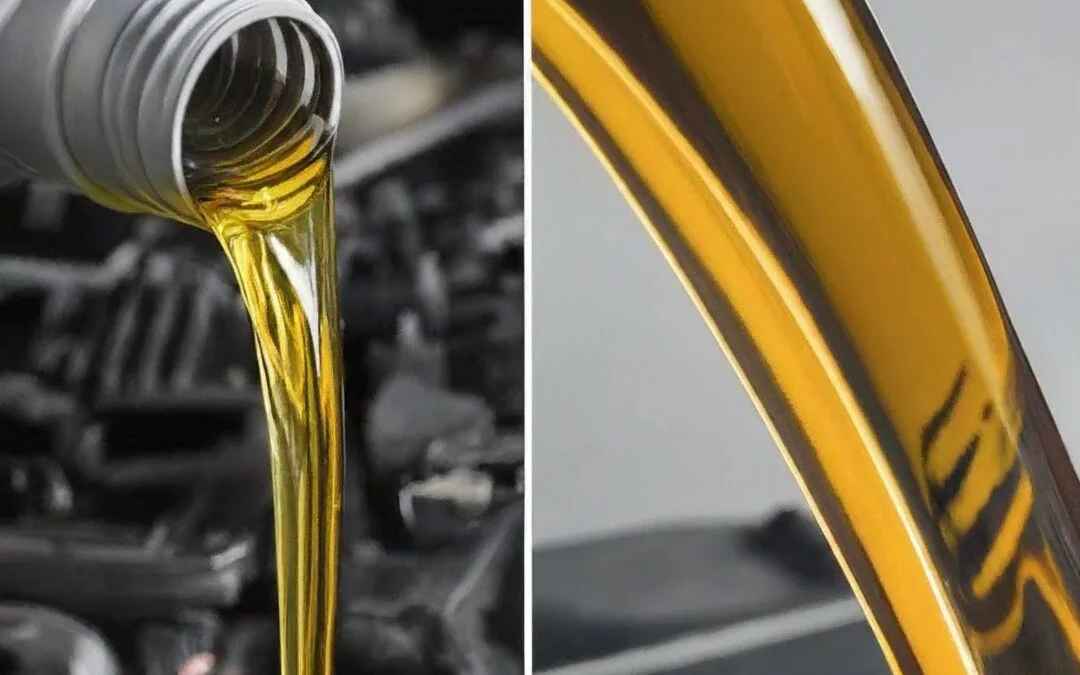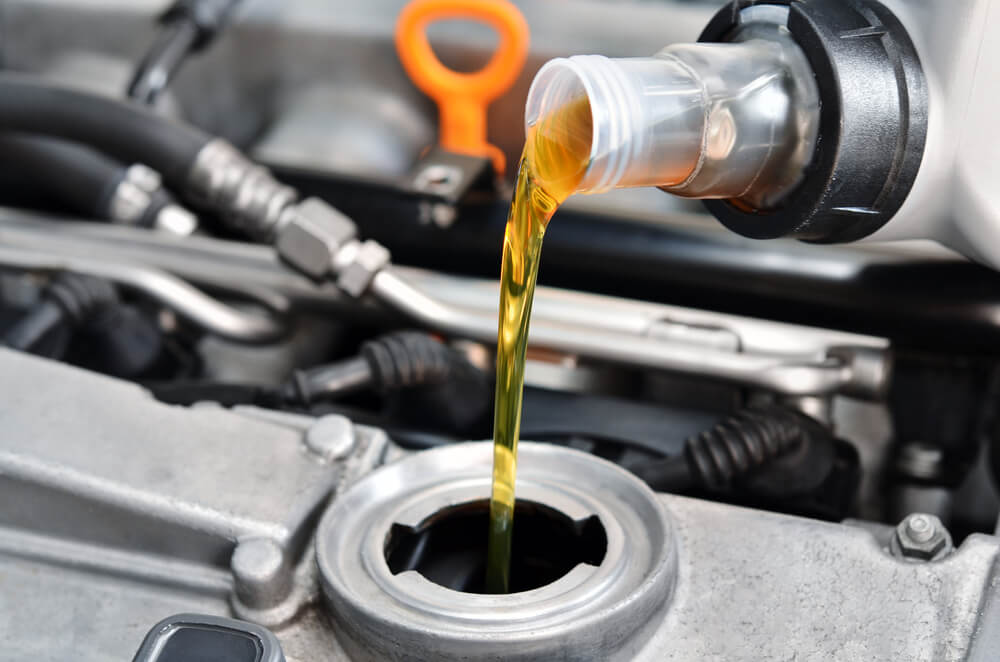Title: Where to Dispose Motor Oil for Free: A Complete Guide
Introduction
Are you wondering what to do with that used motor oil sitting in your garage? Properly disposing of motor oil is crucial for both environmental protection and community well-being. Fortunately, there are numerous convenient and free avenues available for safely discarding used motor oil. In this comprehensive guide, discover a range of accessible options, from municipal recycling centers to local service providers, empowering you to dispose of your motor oil responsibly while preserving our planet. Let’s delve into the myriad possibilities for free motor oil disposal and take a proactive step towards a cleaner, greener future.
Why Proper Disposal of Motor Oil Matters
Motor oil is more than just a lubricant for our vehicles—it’s a substance that demands responsible disposal. Improperly discarded motor oil poses a significant threat to our environment, seeping into our soil, contaminating water sources, and wreaking havoc on ecosystems. Here’s why it’s crucial to handle motor oil disposal with care:
Environmental Impact:
- Water Contamination: Used motor oil, if not disposed of properly, can seep into groundwater, streams, and rivers, contaminating drinking water sources for both humans and wildlife. Just a single gallon of oil can contaminate thousands of gallons of water, making it unfit for consumption.
- Soil Pollution: When poured onto the ground or disposed of in landfills, motor oil can infiltrate soil, rendering it infertile and unable to support plant life. This pollution disrupts the balance of ecosystems, impacting flora and fauna.
Health Hazards:
Toxicity: Motor oil contains harmful substances such as lead, benzene, and arsenic. Direct exposure or inhalation of these toxins can lead to severe health issues, including respiratory problems, organ damage, and even cancer.
Impact on Wildlife:
Harm to Animals: Animals that come into contact with spilled or improperly disposed motor oil can suffer from skin irritation, ingestion of toxins, and damage to their natural habitats. Marine life is particularly vulnerable, with oil spills devastating entire ecosystems and causing long-term damage.
Legal and Social Responsibility:
Legal Consequences: Improper disposal of motor oil can lead to fines and penalties, as it violates environmental protection laws in many regions. Following proper disposal procedures is not just ethical but also a legal obligation.
The Importance of Recycling:
Resource Conservation: Properly disposed of motor oil can often be recycled and re-refined, reducing the need for new oil production and conserving valuable resources. Proper disposal of motor oil isn’t merely a suggestion—it’s an ethical responsibility that safeguards our environment, protects human health, and ensures the well-being of our ecosystems. By choosing the right disposal methods and facilities, we actively contribute to a cleaner, safer world for generations to come.
Finding Local Options for Free Motor Oil Disposal
Disposing of used motor oil responsibly doesn’t have to be a hassle. There are numerous accessible avenues for free motor oil disposal right in your local community. Here’s how you can find these options:
1. Municipal Recycling Centers:
Many municipal recycling centers offer free motor oil disposal services. Check your city or county’s website or contact local authorities to locate these centers. They often accept used motor oil and sometimes other automotive fluids too.
2. Auto Parts Stores and Service Centers:
Several auto parts stores and service centers have programs in place for free motor oil disposal, especially when you purchase new oil or use their services. Large chains often have these initiatives, making it convenient for customers to responsibly dispose of their used oil.
3. Local Hazardous Waste Collection Events:
Keep an eye out for periodic hazardous waste collection events in your area. These events usually cater to various hazardous materials, including used motor oil. They offer a convenient and often free way to dispose of oil and other hazardous substances safely.
4. Online Directories or Government Resources:
Explore online directories or government websites that provide information on local disposal centers or programs. Websites like Earth911 or the Environmental Protection Agency (EPA) may offer search tools to help you locate nearby facilities or drop-off points.
5. Community Bulletin Boards and Local Groups:
Check community bulletin boards, local newsletters, or social media groups. Sometimes, community organizations or local groups organize events or share information about free motor oil disposal options in your area.
6. Retailer Programs and Partnerships:
Some retailers partner with recycling organizations or oil manufacturers to offer free disposal services. Look for programs or partnerships in your vicinity that support environmentally friendly practices.
7. Contact Environmental Hotlines or Helplines:
Environmental hotlines or helplines operated by government agencies or environmental organizations may provide information about local options for free motor oil disposal.
By leveraging these varied avenues, you can easily find local options for free motor oil disposal. Remember, the proper disposal of used motor oil contributes significantly to environmental preservation and community well-being. Choose the most convenient and responsible option available in your area and do your part in protecting our planet.
Preparing Motor Oil for Disposal
Before disposing of used motor oil, it’s essential to handle it carefully to prevent environmental contamination. Follow these steps to properly prepare your used motor oil for disposal:
1. Cooling Down:
Allow the used motor oil to cool down completely if it’s warm from recent use. Handling hot oil can be hazardous and may cause burns.
2. Use a Secure Container:
Transfer the used motor oil into a leak-proof, sealable container. An old, clean plastic container with a tight-fitting lid works well. Avoid using containers that previously held chemicals or food items, as they might contaminate the oil.
3. Labeling:
Clearly label the container as “Used Motor Oil” to prevent any confusion. This ensures that individuals handling the container know its contents and handle it accordingly.
4. Avoid Mixing Substances:
Do not mix used motor oil with other substances like antifreeze or brake fluid. Mixing different automotive fluids can complicate recycling processes and might render the oil ineligible for certain recycling programs.
5. Secure Storage:
Store the sealed container in a safe and secure location away from children, pets, or any potential sources of ignition. Prevent spills and leaks by placing the container on a tray or in a secondary container to catch any accidental drips.
6. Don’t Contaminate Other Waste:
Do not dispose of the container with regular household waste. Always take it to a designated collection center or recycling facility that accepts used motor oil.
Properly preparing used motor oil for disposal is a crucial step towards ensuring its safe handling and environmentally responsible disposal. By taking these simple precautions, you not only protect the environment but also contribute to the efficient recycling and re-refining of valuable resources.
Environmental Impact of Proper Disposal
Proper disposal of motor oil is not just a responsible choice; it’s a vital step towards safeguarding our environment and preserving natural ecosystems. Here’s how proper disposal positively impacts the environment:
1. Preventing Soil and Water Contamination:
Properly disposing of used motor oil prevents contamination of soil and water sources. When motor oil is irresponsibly dumped onto the ground or poured down drains, it can seep into the soil, disrupting its natural composition and fertility. Moreover, it can contaminate groundwater, streams, and rivers, posing a significant threat to aquatic life and ecosystems.
2. Protecting Wildlife:
By ensuring that used motor oil is collected and handled correctly, we mitigate the risk of harm to wildlife. Animals, especially those in sensitive ecosystems like oceans or forests, are vulnerable to the devastating effects of oil spills and pollution. Proper disposal helps reduce the chances of animals ingesting or coming into contact with toxic substances.
3. Preserving Air Quality:
Improperly disposed motor oil may evaporate and release harmful volatile organic compounds (VOCs) into the air, contributing to air pollution and potentially causing respiratory issues in humans and animals. Proper disposal methods prevent these emissions, preserving air quality and public health.
4. Supporting Recycling and Reuse:
Properly disposed of motor oil can often be recycled and re-refined, reducing the demand for new crude oil extraction. Recycling used oil conserves valuable resources and minimizes the environmental impact of oil production.
5. Compliance with Environmental Regulations:
Adhering to proper disposal methods ensures compliance with environmental regulations and laws. Responsible disposal practices help prevent legal repercussions and penalties associated with improper waste management.
Conclusion: Where to Dispose of Motor Oil for Free
Navigating the landscape of motor oil disposal doesn’t have to be daunting. From municipal recycling centers to retailer programs and hazardous waste collection events, there exists a myriad of accessible and cost-free options for disposing of used motor oil responsibly.
By tapping into these resources, we not only ensure the proper handling of this hazardous waste but also contribute significantly to environmental preservation. Each drop of properly disposed-of motor oil safeguards our soil, water sources, and wildlife from contamination and aids in maintaining air quality.
Choosing the right disposal method isn’t just about compliance—it’s about taking an active stance in protecting our planet. It’s a collective responsibility to safeguard our environment, and by utilizing these free disposal avenues, we actively participate in the sustainable management of resources.
Let’s embrace the convenience and responsibility that come with these disposal options. Together, let’s ensure that every drop of used motor oil finds its way to designated recycling centers or collection points, thereby fostering a cleaner, greener, and healthier world for everyone.
Join the movement towards responsible waste management, and let’s make a lasting impact—one oil change at a time.
Useful link:
https://www2.calrecycle.ca.gov/UsedOil/CertifiedCenters/
FAQ about where can I dispose motor oil for free
Where can I dispose of used motor oil for free?
- You can dispose of used motor oil for free at various locations such as municipal recycling centers, some auto parts stores, service centers, local hazardous waste collection events, and through certain retailer programs. Check with your local authorities or recycling centers for specific locations near you.
2. Do all recycling centers accept used motor oil?
- Not all recycling centers accept used motor oil, but many do. It’s essential to contact your local recycling center or check their guidelines online to confirm whether they accept used motor oil and any specific procedures they may have.
3. Can I mix used motor oil with other automotive fluids for disposal?
- It’s best not to mix used motor oil with other automotive fluids like antifreeze or brake fluid. Mixing different fluids can complicate the recycling process and might make it ineligible for certain recycling programs. Keep them separate to ensure proper disposal.
4. Is it necessary to store used motor oil in a specific container for disposal?
- Yes, it’s crucial to store used motor oil in a secure and leak-proof container. An old plastic jug or container with a tight-fitting lid works well. Ensure it’s labeled clearly as “Used Motor Oil” to prevent any confusion during disposal.
5. Are there any legal consequences for improper disposal of motor oil?
- Improper disposal of motor oil can lead to legal consequences as it violates environmental protection laws in many areas. Fines and penalties may apply. It’s essential to follow proper disposal procedures to comply with regulations and avoid legal issues.
6. How often are hazardous waste collection events held for motor oil disposal?
- The frequency of hazardous waste collection events varies by location. These events may be held quarterly, semi-annually, or annually. Check with your local authorities or environmental agencies for schedules and details about upcoming collection events.
7. Can I recycle used motor oil, and how is it done?
- Yes, used motor oil can often be recycled and re-refined. Recycling involves removing impurities and contaminants from the oil through a process of filtration and refining. This recycled oil can then be used as a base for new motor oil or other lubricants.
8. Do service centers or auto parts stores charge a fee for accepting used motor oil?
- Many service centers and auto parts stores offer free motor oil disposal services, especially if you’re purchasing new oil or utilizing their services. Some retailers have programs that allow for free disposal regardless of a purchase.
9. Can I dispose of motor oil with regular household waste?
- No, used motor oil should never be disposed of with regular household waste. It requires special handling and should be taken to designated collection centers or recycling facilities to ensure proper disposal.
10. How can I find more information about local options for free motor oil disposal?
- You can find more information about local options for free motor oil disposal by contacting your local recycling center, checking government websites, using online directories like Earth911, or reaching out to environmental hotlines operated by government agencies.





Leave a Reply